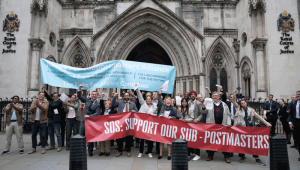The appalling events revealed to have occurred at Mid Staffordshire NHS Trust should make all of us think hard about our public services and how best to organise them. The ill treatment and neglect of patients is hard to fathom and the legion of those who metaphorically – and literally – appear to have walked by on the other side is equally shocking.
What does all this tell us about how we should go forward? One easy argument has been that the system became too target-driven, leading to a focus on the things people were being rewarded for hitting and not on the elements of service that matter most. There is clearly some truth in this: targets are there to be hit, and if set up wrongly, can result in unintended consequences.
But we must remember that targets were there for a reason. They were not just brought in because control freaks wanted to take over. They were a response to the fact that many public services didn’t seem to focus on what users wanted – shorter waiting times, more preventative treatment, or kids getting decent grades at school. Instead, they too often concentrated on what providers and staff of services felt like doing. They were also at times woefully inefficient, unfocused and uncaring.
There was no golden age when professionals were just left to it and everything was fine. It is clear that things can get out of hand in trying to tighten things up. Targets and other incentives have to be very carefully constructed and then monitored for side effects. Those who realise things are going wrong must be encouraged to speak out, not be punished for whistle-blowing. Users and patients must be listened to, not thought of as inconvenient moaners.
Of course this is not just a public services issue. The recent horse meat fiasco is surely about the profit motive incentivising organisations to try to make money by exploiting the fact that the price of horse is so much lower than the price of beef. Always in the private sector, where profit and the short-run share price are king, these sort of incentives are alive. At least public sector targets are transparent, and those who set them are accountable to the electorate. The incentives playing out in the private sector are often far less obvious and much more powerful.
So what does all this tell us? Mainly, I think, that we must be vigilant and careful as we bring private sector approaches and organisations into public service delivery.
Fraud discovered in the Work Programme, where staff have incentives to report things going well even when they are not, or to ‘force’ claimants to declare themselves self-employed even where they have virtually no work, illustrates the dangers. Harsh new public management techniques have their place – be that through targets, inspection, ‘quasi’ markets and the like. But this must be married, in an awkward relationship, with empowering professionals and users if we are to get the best services.
Perhaps a key lesson is that no amount of system reform can ever replace ethics in service delivery. Antony Jenkins, the new chief executive of Barclays, is changing a number of things at the bank and closing down some of the most toxic elements of the old Barclays profit-making machine, like their tax avoidance service. Perhaps his most important move has been to make clear to all employees that they have to work to a different culture in future – he has emailed all staff to say that if they are not up for this, then his ‘new’ Barclays is not the place for them.
Individual managers, bosses, and front-line staff can never just appeal to the ‘system’ as an excuse for behaving in ways that would be unacceptable if their actions were ever put under the spotlight. Whether working in the private, the public or the voluntary sector, we must never forget that. Perhaps the biggest lesson from Mid Staffs is that wherever we are working, we must never leave our humanity at the door.
This post first appeared on the NPC Blog












